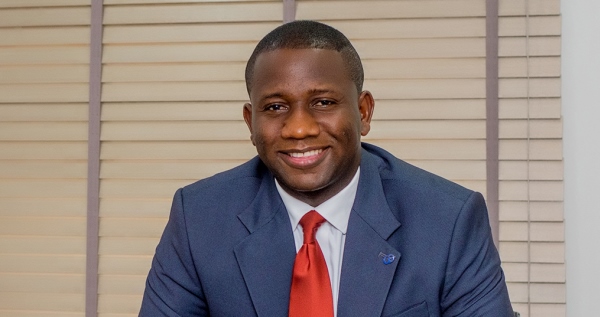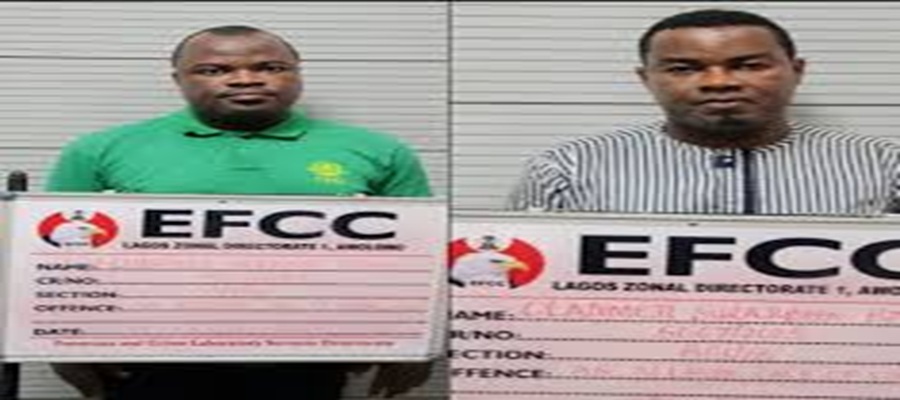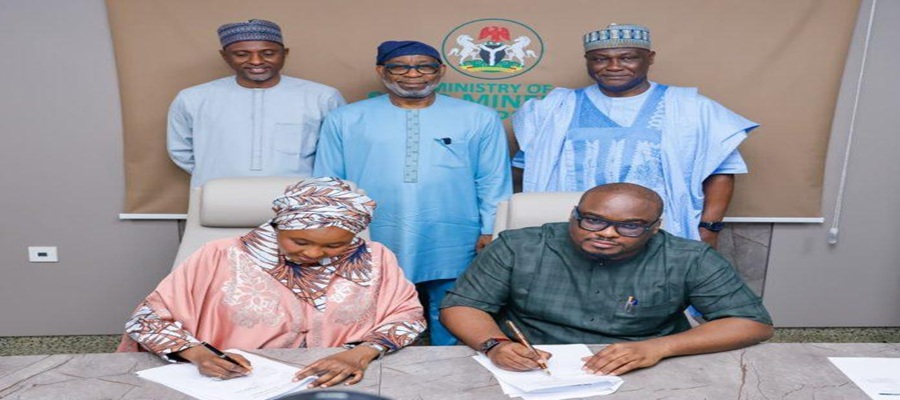News
SMEs as a Key Driver to Economic Growth in an Emerging Market

Adewale A. Adeyipo
In spite of the harsh economic conditions Nigeria is faced with, recent trends have shown there are opportunities for growth of the SME Industry in Nigeria. As reported by Nigeria Bureau of Statistics, 2019 Q1 GDP grew by 2.01%, with majority of this growth being associated with the Non-Oil Sector which is a positive sign and indicative of Nigeria’s possible diversification and less reliance on the oil sector to drive her economy.
The International Monetary Fund forecasts that GDP will increase by 2.1% in 2019, which would make Nigeria one of Africa’s slowest-growing economies and means that growth is negative in per capita terms.
While inflation is at 11.4% and has been above the Central Bank’s target of 6% to 9% for almost four years. How then can Nigeria survive the next four years of uncertainties in revenue generation, debt recovery rate, a further devaluation of Naira, low FDI flows into Nigeria in 2018, expected high fuel prices and insecurity? A recent report from Trading Economics shows that Nigeria’s all-time low of FDI inflow for 2018 Q4 was $314 million.
Nigeria’s population median age is 18 years that is made up of young, vibrant, skilled, and unskilled youths. With this youthful population and despite the tough economic conditions, I firmly believe Youth engagement through the SME approach can drive economic growth.
One of the key drivers to economic development in an emerging economy has been the successful engagement of SMEs, while the growth of economic development has been an essential goal for many developing nations of the world.
I wonder sometimes how a country with a 23% unemployment rate, inflation rate of 11.4% plans gets her citizen out of poverty which currently stand at 33.1% if not by empowering the populace that are living below the ‘Poverty Line. i.e. they live and sustain with less than $1 a day. The more people we have actively engaged, the better we are as a nation and with poverty alleviation.
The contribution of SMEs has been accepted as one of the primary supports for economic growth because of its ability to enhance economic output and improve human welfare. With so many challenges faced with SMEs in Nigeria today, low FDI inflows in 2018 is another critical indicator showing why tech firms like Google would establish an AI lab in Ghana and not in Nigeria despite current economic indicators showing that the Nigerian economy is stronger than Ghana’s economy.
Before a technological investment is made in any economy, the investing party measures the opportunity for growth, existing infrastructure, and innovation. Such parameters have side-lined Nigeria for several years. FDI inflow in Nigeria for Q1 2019 was recorded at $1.1 B (Trading Economics Reports).
Though many argue that FDI in Nigeria is usually low after a general election. The point remains that investors must see the basic amenities on ground before coming into any nation which of course stability and security is essential.
Jeff Dean’ the leading AI software engineer at Google, stated that Ghana is the ‘Future of Africa’ and it had to do with the robust network of academic institutions as well as infrastructure in place which was a significant factor on establishing an AI lab in Accra. – Aside from the ‘not too deliberate approach’ from the Government, inadequate Private-Public partnerships and collaborations amongst Government agencies.
The SMEs in Nigeria also lack access to relatively cheap and effective sources of funding, which hinders their growth and contribution to economic growth.
Agencies like SMEDAN can emulate Malaysia NSDC (National SME Development Council) as a use case where they demonstrated a positive impact on their economy since it was established in 2004.
As at 2015, the contribution of SME to the Malaysian economy was measured in terms of their share of the total number of businesses (97.3%) and share of the total number of jobs created at 59%. (Department of Statistics Malaysia)
International Finance Cooperation & World Bank’s Support on SMEs
Without a doubt, Government policies are one of the essential drivers for SMEs developments in any nation.
Two decades ago, Global Financial Institutions and Economic Organizations like World Bank and International Finance Corporation (IFC) emphasized the significance of small and medium-sized enterprises (SMEs), especially in developing regions like Nigeria, these bodies had consistently sought the support of the Government to implement policies for sustainable growth in human capital, financial inclusion, and technological advancement.
According to the World Bank Group, ‘The country partnership strategy period (FY2014-FY2019) has an investment of $8.8 billion through the International Development Association (IDA) and International Bank for Reconstruction and Development (IBRD).
Nigeria has been one of the International Finance Corporation’s (IFC) fastest growing portfolio and represents IFC’s fifth largest global country exposure, with a committed volume of $1.8 billion. Their support for Nigeria is structured around several priorities, which include promoting diversified growth and job creation with a focus on youth, women and the poor in marginalized areas; whilst improving social and financial inclusion.
It was estimated that most developing economies have a high potential in ensuring diversification, inclusiveness, and expansion of industrial production as well as the fulfillment of the fundamental objectives of development. As reported by the World Bank Group, the Country partnership period (FY2014 – FY2019) for Nigeria is expected to have achieved:
- 16% increase in power generation capacity; 8% increase in transmission capacity
- Improved access of small farmers to inputs and technology and improvement in their average income
- Improved road access for two million people in rural areas.
- Additional two million micro-entrepreneurs provided with financial services.
- Additional 100,000 loans provided to Small and medium enterprises (SMEs).
World Bank has estimated the growth rate for Nigeria’s economy in 2019 at 2.1% with job creation rise of 10% quarter-on-quarter if local or raw materials and resources are well utilized. SMEs depends on the use of raw materials and innovative technologies to further assist them in achieving their goal of self- reliance.
For example, Provision of starch as a raw material to the market can provide jobs for three different levels in starch production, Starch for consumption, starch for clothing, starch for pharmaceuticals. In this ecosystem, the raw material provider and the user creates more jobs and keep the SME ecosystem sustainable.
Adewale A. Adeyipo is Ag. CEO CWG Plc
News
EFCC Arraigns Two FSDH Bank Officials Over $307k, €50k Fraud


EFCC
News
AfDB Supports Francophone Africa Start-ups with €6.5M

The African Development Bank Group last week approved an investment of €6.5 million in the Saviu II fund in order to support technology start-ups through their seed phase and first institutional fundraising, mainly in French-speaking Central and West Africa.

The Bank will invest €4.5 million as equity and €2 million as a first-loss hedging tranche on behalf of the European Commission, under the Boost Africa Programme.
This participation of the Bank Group will enable the Saviu II fund to give priority to companies with a strong technological or digital component.
Saviu II, the second investment vehicle of Saviu Partners, plans to invest between €500,000 and €3 million in about 20 technology or technology-oriented business-to-business start-ups in the seed phase or carrying out first institutional fundraising.
The Saviu II venture capital fund aims to make at least 60% of its commitments in the French-speaking countries of West and Central Africa: Côte d ‘Ivoire, Cameroon, Benin, Senegal, Togo, Burkina Faso and Mali.
The fund can also co-invest in promising technology companies in East Africa that have a strong team and business model, and whose strategy includes entering the market in French-speaking West African countries and establishing a strong presence there.
In addition, the fund will devote a dedicated envelope to pre-seed investments, focusing on minority equity investments, usually in co-investment with studios, incubators or other ecosystem partners.
News
Nigeria Inks $1.3bn MoU with AFC for Alumina Refinery, Mining Push

Nigerian Government has signed a $1.3 billion Memorandum of Understanding (MoU) with Africa Finance Corporation (AFC) via the Solid Minerals Development Fund (SMDF) to fund an alumina refinery, national geoscience mapping, and a strategic investment vehicle for mining growth.

Special Assistant to the Minister of Solid Minerals Development, Segun Tomori, said the refinery will process one million tonnes of bauxite yearly using a modern Bayer process, powered by an on-site gas-fired cogeneration plant.
Minister Dele Alake called it a transformative milestone boosting GDP, aligning with reforms that improve investment climate, regulations, and licensing to attract private capital. He directed agencies to fast-track permits.
The 20-year project at 95% utilization eyes 19 million tonnes total output, $1.2 billion annual GDP addition, $25 billion economic impact, and $8 billion forex earnings, per feasibility studies.
SMDF Executive Secretary Fatima Shinkafi termed it the agency’s biggest funding deal, supporting value-addition policy.
The partnership extends to geoscience mapping for mineral data, de-risking exploration, and a joint vehicle for mining assets.
Permanent Secretary Engr. Farouk Yabo praised the reforms. Shinkafi signed for government; AFC’s Franklin Edochie for the corporation, witnessed by AFC CEO Samaila Zubairu.
Tomori positioned it as Nigeria’s largest private mining investment and FDI magnet.

 Telecom3 days ago
Telecom3 days agoSunil Bharti Mittal Conferred GSMA Lifetime Achievement Award for Transforming Global Telecommunications

 Telecom3 days ago
Telecom3 days agoWhy Digital Trust Matters: Secure, Responsible AI for African SMEs?

 E-Business3 days ago
E-Business3 days agoJumia Tech Week 2026 Begins with Tech Deals on Smartphones, Electronics, and Everyday Technology

 General News3 days ago
General News3 days agoKrishnan Exits Africa Data Centre to Embark on Professional Chapter

 E-Financial2 days ago
E-Financial2 days agoNRS Targets N40trillion in Tax, Royalty Revenue in 2026

 News3 days ago
News3 days agoAfDB Supports Francophone Africa Start-ups with €6.5M

 E-Business3 days ago
E-Business3 days agoHouse Queries NDIC: ₦5m Max Payout for Failed Bank Depositors

 Telecom3 days ago
Telecom3 days agoHouse Probes Fintech Regulation via Public Hearing on New Commission Bill
























